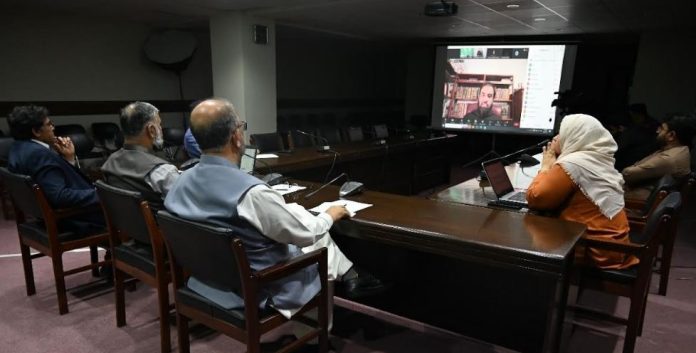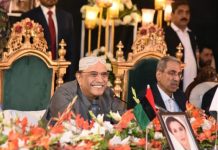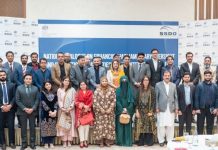DNA
ISLAMABAD, APR 15: Amidst global turmoil and evolving dynamics, scholars and political scientists must reevaluate the concept of nationalism and its divisive implications. The current state of the world calls for a more inclusive and compassionate approach to governance based on moral principles and humane values. A reimagined caliphate as a confederation of governments would uphold universal human rights and foster solidarity among diverse communities.
This was suggested by Dr Ovamir Anjum, renowned scholar and Imam Khattab Endowed Chair of Islamic Studies at the University of Toledo, US, during a lecture on “The Crisis of the Nation-State System: Quest for a Viable Alternative,” held at the Institute of Policy Studies (IPS), Islamabad.
The session, attended by academics, scholars, and students alike, served as a platform for critical discourse and reflection, inspiring people to strive for a better future through collaboration and collective action.
Dr Anjum highlighted that nationalism, while often touted as a unifying ideology, has served as a divisive factor within societies. It can exacerbate existing social, economic, and political tensions and lead to exclusionary practices where nationalist affiliations may unleash havoc, as is evident today in Israeli aggression in Gaza and global complicity in the genocide. He further underscored that at the core of nationalism lies fabricated notions of identity, which undermine the inherent equality of all human beings.
“Nationalism is a powerful yet often bloody idea,” he stressed, cautioning against its divisive nature that fosters hatred and xenophobia by categorizing individuals as insiders and outsiders. He emphasized that the pursuit of nationalism often leads to violence and oppression.
While examples like the European Union and the USA offer models where civilization and a collective sense of affiliation to certain values overshadow other identities, the Islamic model of caliphate is as practical and productive today as it has ever been in the past. Islam serves as a unifying force for Muslims around the world, but the nationalist movements within Muslim-majority countries have sought to assert their distinct national identities, sometimes at the expense of religious unity. The scholar urged Muslims worldwide to reconsider the concept of nationalism and its far-reaching implications.
Central to Dr Anjum’s vision is reimagining the caliphate as a confederation of governments, promoting political and economic stability while upholding universal human rights. He argued that this model offers a viable alternative to the system characterized by oppression and division, envisioning a future where justice, compassion, and solidarity prevail. Moreover, in the rapidly changing world, it offers a path towards much-needed unity and resilience in the Muslim world.
The speaker underscored the importance of addressing immediate obligations while nurturing long-term aspirations. He called upon young Muslims to transcend artificial borders, engage in meaningful dialogue, and collaborate on pressing issues such as economic development, religious discourse, and education.
Drawing upon his extensive research and expertise, Dr Anjum shed light on the complexities of contemporary challenges facing the Muslim world, ranging from the allure of extremist ideologies to the pitfalls of maintaining the status quo. His insights provide valuable perspectives for navigating turbulent times and emphasize the need for unity and understanding.

















